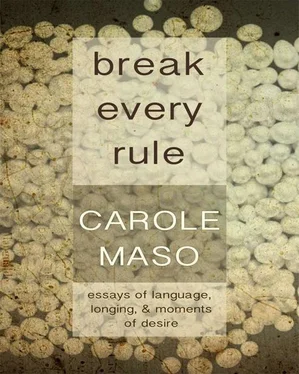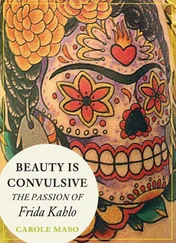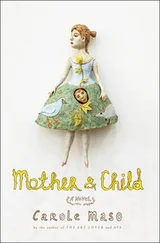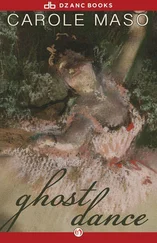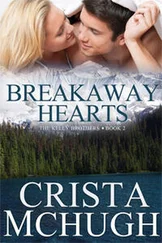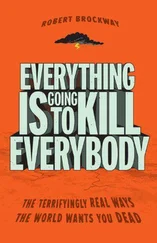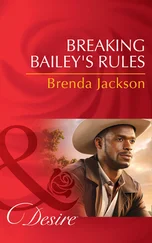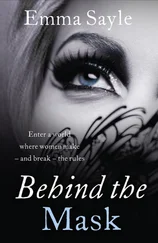I cannot say what direction her story would have taken had it not been assuming its final form during the terrible weeks of the Persian Gulf war. It was my first war as an adult, and like everyone I watched the whole, awful thing live on TV. War as a subject permeates the text of AVA , but more importantly war dictates the novel’s shape. A very deep longing for peace, one I must admit I had scarcely been aware of, overwhelmed me as I watched the efficient, precise elimination of people, places, things by my government. My loathing for the men who were making this, and my distrust of the inherited, patriarchal forms led me to search for more feminine shapes — less “logical” perhaps, since a terrible logic had brought us here — less simplistic, a form that might be capable of imagining peace, accommodating freedom, acting out reunion. I was looking for the fabric of reconciliation. Something that might join us. I was determined not to speak in destructive or borrowed forms any longer. But what did that mean? I began to ask the question of myself, “What could she not ask of fiction and therefore never get?” I began one more time to ask what fiction might be, what it might do, and what we might deserve, after all. Traditional fiction had failed us. Did we dare presume to dream it over? To discard the things we were given but were never really ours?
In an attempt to ward off death with its chaos and mess, traditional fiction had flourished. Its attempts to organize, make manageable and comprehensible with its reassuring logic, in effect, reassures no one. I do not think I am overstating it when I say that mainstream fiction has become death with its complacent, unequivocal truths, its reductive assignment of meaning, its manipulations, its predictability and stasis. As I was watching the war it became increasingly clear to me that this fiction had become a kind of totalitarianism, with its tyrannical plot lines, its linear chronology, and characterizations that left no place in the text for the reader, no space in which to think one’s thoughts, no place to live. All the reader’s freedoms in effect are usurped.
In an ordinary narrative I hardly have time to say how beautiful you are or that I have missed you or that — come quickly, there are finches at the feeder! In a traditional narrative there is hardly any time to hear the lovely offhand things you say in letters or at the beach or at the moment of desire. In AVA I have tried to write lines the reader (and the writer) might meditate on, recombine, rewrite as he or she pleases. I have tried to create a place to breathe sweet air, a place to dream. In an ordinary narrative I barely have the courage or the chance to ask why we could not make it work, despite love, despite everything we had going. In an ordinary narrative I would have probably missed the wings on Primo Levi’s back as he stands at the top of the staircase. And Beckett too, during the war, hiding in a tree and listening to a song a woman sings across the sadness that is Europe.
“The ideal or the dream would be to come up with a language that heals as much as it separates.” When I read this line by Hélène Cixous, I knew she was articulating what I was wordlessly searching for when I began to combine my fragments. “Could one,” Cixous asks, “imagine a language sufficiently transparent, sufficiently supple, intense, faithful, so that there would be reparation and not only separation?” And yes, isn’t it possible that language instead of limiting possibility might actually enlarge it? That through its suggestiveness, the gorgeousness of its surface, its resonant, unexplored depths, it might actually open up the world a little, and possibly something within ourselves as well? I agree with Barthes when he says that the novel and the theater (and not these essays by the way) are the natural settings in which concrete freedom can most violently and effectively be acted out. That this is not the case for the most part, in fiction at any rate, is a whole other matter relating back to the “literary” editors who have entered a covert, never-discussed, and possibly not even conscious conspiracy to conserve a certain aesthetic. Women, blacks, Latinos, Asians, etc., are all made to sound essentially the same — that is, say, like John Cheever, on a bad day. Oh, a few bones are thrown now and then, a few concessions are made to exotic or alternative or “transgressive” content, but that is all. And more freedom slips away.
All experience, of course, is filtered through one’s personality, disposition, upbringing, culture (which is why I know we do not all sound like John Cheever). Truth be told I was never much for ordinary narrative, it seems. Even as a child, the eldest of five, I would wander year after year in and out of our bedtime reading room, dissatisfied by the stories, the silly plot contrivances, the reduction of an awesome complicated world into a rather silly, sterile one. When my mother was reading stories I would often wander out to the night garden, taking one sentence or one scene out there with me to dream over, stopping, I guess, the incessant march of the plot forward to the inevitable climax. Only when it came time for poetry did I sit transfixed. These seemed to me much closer an approximation of my world, which was all strangeness and wonder and light.
Back then my remote father grew roses. The tenderness of this fact, and the odd feeling I had that he cared more for these silent, beautiful creatures than he did for us, always intrigued and oddly touched me. It was what my childhood was: random, incomprehensible, astounding events, one after the next. I cherish this image of my father. And because I have never wholly understood it I gave Ava’s father the task of growing roses. Unlike my father, Ava’s father survived Treblinka. He gives Ava a penny apiece for each Japanese beetle she can collect from the garden. The Germans sold the dead Jews’ hair for fifteen pennies a kilo. There were piles of women’s hair there. Fifty feet high. Ava in her innocence and purity, holding her clear jar of beetles, says, “Yes, we’ll have to make holes for the air.” The book is built on waves of association like this. There is a rose called “Peace.” A rose called “Cuisse de Nymphe Emue”—that’s “Thigh of an Aroused Nymph.” It blooms once unreservedly and then not again.
I have attempted in some small way to create a text, as Barthes says, “in which is braided, woven in the most personal way, the relations of every kind of bliss: those of ‘life’ and those of the text, in which reading and the risks of life are subjects to the same anamnesis.”
Back to my mother reading me stories those long ago nights. Another thing I did was to detach the meanings from the words and turn them into a kind of music, a song my mother was singing in a secret language just to me. It was a rhythmic, sensual experience as she sang what I imagine were the syllables of pure love. This is what literature became for me: music, love, and the body. I cannot keep the body out of my writing; it enters the language, transforms the page, imposes its own intelligence. If I have succeeded at all you will hear me breathing. You will hear the sound my longing makes. You will sense in the text the body near water, as it was then, and in silence. Not the body as it is now, in Washington, D.C., next to obelisks and pillars and domes, walking it seems in endless circles and reciting the alphabet of those streets over and over. That will show up later; the body has an incredible memory.
My hope is that you might feel one moment of true freedom in AVA . That the form, odd as it may at first seem, will not constrict or alienate, but will set something in motion. Here I am always just on the verge of understanding, which is the true state of desire. Perhaps you will feel some of this enormous desire for everything in the world in the fragments of this living, changing, flawed work. And in the silence between fragments.
Читать дальше
